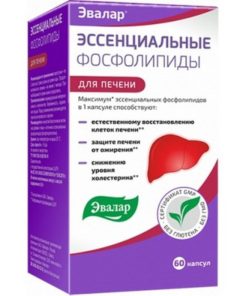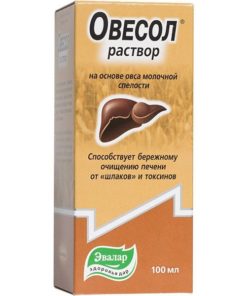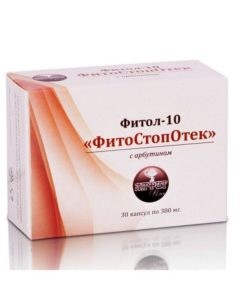$11.58
It helps to improve the functional state of the liver, the elimination of toxins and metabolites. Stimulates secretion, outflow of bile and contributes to the normalization of biochemical processes in liver cells.
It helps to improve the functional state of the liver, the elimination of toxins and metabolites. Stimulates secretion, outflow of bile and contributes to the normalization of biochemical processes in liver cells.
Artichoke is an exotic vegetable plant originating from the Mediterranean, the fleshy juicy leaves of which have a choleretic, anti-inflammatory and hepatoprotective action. Dry and liquid extracts are obtained from artichoke leaves, which are used to improve the functional state of the liver. Artichoke leaves identified cinarin, chlorogenic and caffeic acids, mineral salts, polysaccharides (up to 80% of which are inulin), pectin, tannins, organic acids, potassium, and vitamins A, B1, B2, C. Artichoke extract improves functional state of the liver. Choleretic and hepatoprotective action of artichoke is due to the presence of polyphenolic derivatives of quinarine, chlorogenic and caffeic acids.
Due to the complex of these compounds, the artichoke:
- stimulates the secretion and outflow of bile;
has anti-inflammatory effect; - promotes the elimination of toxins and metabolites from the liver.
Inulin contained in the artichoke, as well as ascorbic acid, carotene, vitamins B1 and B2 contribute to the normalization of metabolism and have a positive effect on lipid metabolism, so that the artichoke is necessary for:
- improve digestion, especially when taking a significant amount of carbohydrates and fatty foods;
- normalization of biochemical processes in liver cells;
- improve cholesterol metabolism.
“Artichoke extract” is a natural product that helps improve the functional state of the liver.
Artichoke Information:
- possesses choleretic and anti-inflammatory action;
- stimulates cholesterol metabolism;
- improves the functional state of the liver.
What else is useful artichoke?
Artichoke is an indispensable element of the so-called “Mediterranean diet” because it has a beneficial effect on lipid metabolism. Splitting and processing a significant amount of fats and carbohydrates will help an increased amount of bile and digestive enzymes isolated in response to taking the artichoke or drugs from it.
Since approximately 80% of the artichoke carbohydrates are inulin, which does not require insulin produced by the pancreas for its utilization, the artichoke can be considered as an element of a diet in diabetes.
Release form:
20 tablets of 0.5 g.
Mode of application:
Adults take 2 tablets per day with meals. Reception duration – 10-20 days.
Contraindications:
Individual intolerance to the components of the product.
Composition:
each tablet contains 500 mg of artichoke extract.
| Weight | 0.1 kg |
|---|
Be the first to review “Artichoke Extract Evalar – Natural Herbal Preparation for Liver, 20 Tablets” Cancel reply
Related products
For liver and kidney
Hepatrine Evalar is a natural herbal preparation for liver health, 30 and 60 capsules
For liver and kidney
Gleyatonik with rosehip – natural herbal preparation for the liver, 100 ml
For liver and kidney
Essential phospholipids Evalar – a natural herbal preparation for the liver, 60 capsules
For liver and kidney
Ovesol Evalar – natural solution based on oats for liver cleaning, 100 ml
For liver and kidney
Hepatium Phytopreparation for Liver, 60 Capsules, AYUNOVA Herbalcare
For liver and kidney
Fitol-10 Phytoplasty – a natural herbal preparation against edema with arbutin, 30 capsules
For liver and kidney
Spetstonik – natural extraordinary oil with stones, 30 capsules












Reviews
There are no reviews yet.